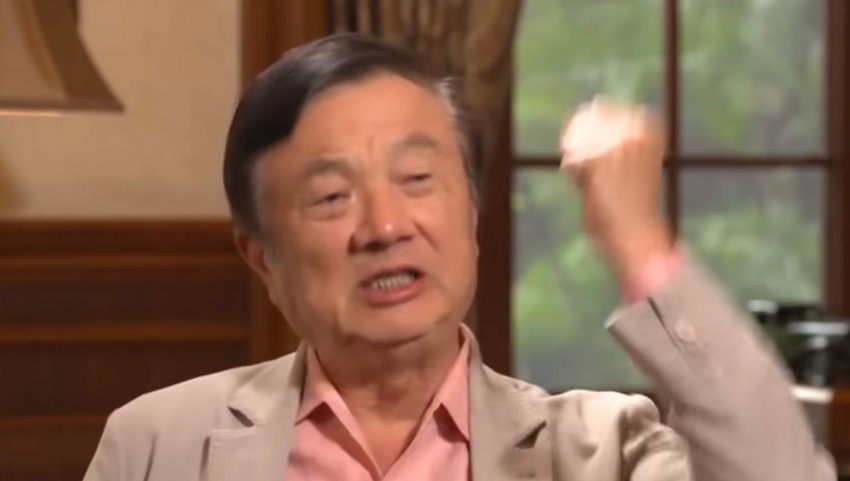Huawei reportedly shifts to a defensive stance
Reports from China indicate Huawei boss Ren Zhengfei has adopted a pessimistic tone in recent internal communications, shifting company strategy towards survival rather than growth.
August 24, 2022

Reports from China indicate Huawei boss Ren Zhengfei (pictured) has adopted a pessimistic tone in recent internal communications, shifting company strategy towards survival rather than growth.
We have the South China Morning Post to thank for this revelation, although it derived its information from Chinese media outlet Yicai. It seems Ren sent a company-wide internal memo warning of tough times ahead and the need for Huawei to adapt accordingly. There was talk of an anticipated global recession but also a concession that US sanctions have had a profound effect.
“We have to survive first, and we’ll have a future if we can survive,” Ren reportedly said in the memo. With that in mind it seems Huawei will now put a lot of its more speculative diversification initiatives on the back burner for the foreseeable future. In addition Ren urged employees to be as realistic as possible in their budgetary forecasting. “No more stories, we have to talk about the realities,” he said.
Huawei’s revenues have been declining for some time, thanks largely to US restrictions making it impossible for the company to continue to make competitive smartphones. A large chunk of the company’s revenues were derived from its consumer-facing businesses, but the telecoms kit side has also been squeezed by US pressure on its allies to exclude its equipment from their networks.
To date the company had continued to adopt a defiant stance in the face of US attempts to destroy it but this memo indicates a retreat from that approach. While its broad range of diversification initiatives allowed Huawei to superficially appear as big and strong as ever at Mobile World Congress earlier this year, it seems safe to assume many of them are not yielding sufficient return on investment.
That doesn’t come as a great surprise. Pivoting away from core competence is a fraught endeavour at the best of times, but when the primary reason for doing so is defensive desperation the chances of success are usually diminished further. The rational thing to do when faced with persistent adverse factors is to downsize to a level where sustainable profitability is guaranteed and rebuild from there. That’s what Ericsson did a few years ago, after all.
It’s impossible to know how much of Huawei’s previous bravado was fuelled by the Chinese state seeking to save geopolitical face. Maybe this retreat coincides with a reduction in state support or some other behind-the-scenes strategic shift. Or maybe it’s just an honest appraisal of the current global economic environment. There have been no public statements from Huawei on this matter, we should note, but in the absence of a denial it seems fair to take the reports at face value.
Get the latest news straight to your inbox. Register for the Telecoms.com newsletter here.
About the Author(s)
You May Also Like











_1.jpg?width=300&auto=webp&quality=80&disable=upscale)


.png?width=800&auto=webp&quality=80&disable=upscale)